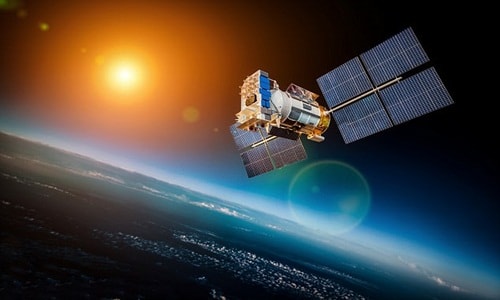Thousands of satellites in Earth orbit could crash into each other
Thousands of telecommunication satellites launched into Earth's orbit in the future will lead to collisions and accumulation of space junk.
The amount of space debris increased during the period 1957 - 2015
The ever-decreasing cost of satellites could see hundreds or thousands of new satellites launched in the near future, according to the Mirror, creating a massive increase in the number of satellites operating in Earth orbit compared to the current 1,300.
 |
Satellites orbit around the Earth. Photo: AP. |
Hugh Lewis, a senior lecturer in aerospace engineering at the University of Southampton in the UK, ran computer simulations to assess the consequences of increasing satellite traffic in orbit. The results showed that the number of catastrophic collisions between satellites could increase by 50%. The research was funded by the European Space Agency (ESA).
These collisions increase the amount of space junk in orbit, leading to a greater likelihood of further collisions, affecting the services the satellites provide, Lewis said.
"There has been a change in the satellite manufacturing model. It costs hundreds of millions of dollars to create a single telecommunications satellite, but mass-produced satellites are much cheaper. The number of satellites launched in the coming years will be unprecedented. They have a significant impact on the space environment by increasing the rate of collisions," Lewis said.
In the study, Lewis also offers a series of guidelines to help prevent potential collisions, including reducing the time satellites spend in low orbit after their missions end, making satellites smaller and lighter, adding propulsion systems, and launching missions to remove faulty satellites.
According to VNE
| RELATED NEWS |
|---|

.jpg)

